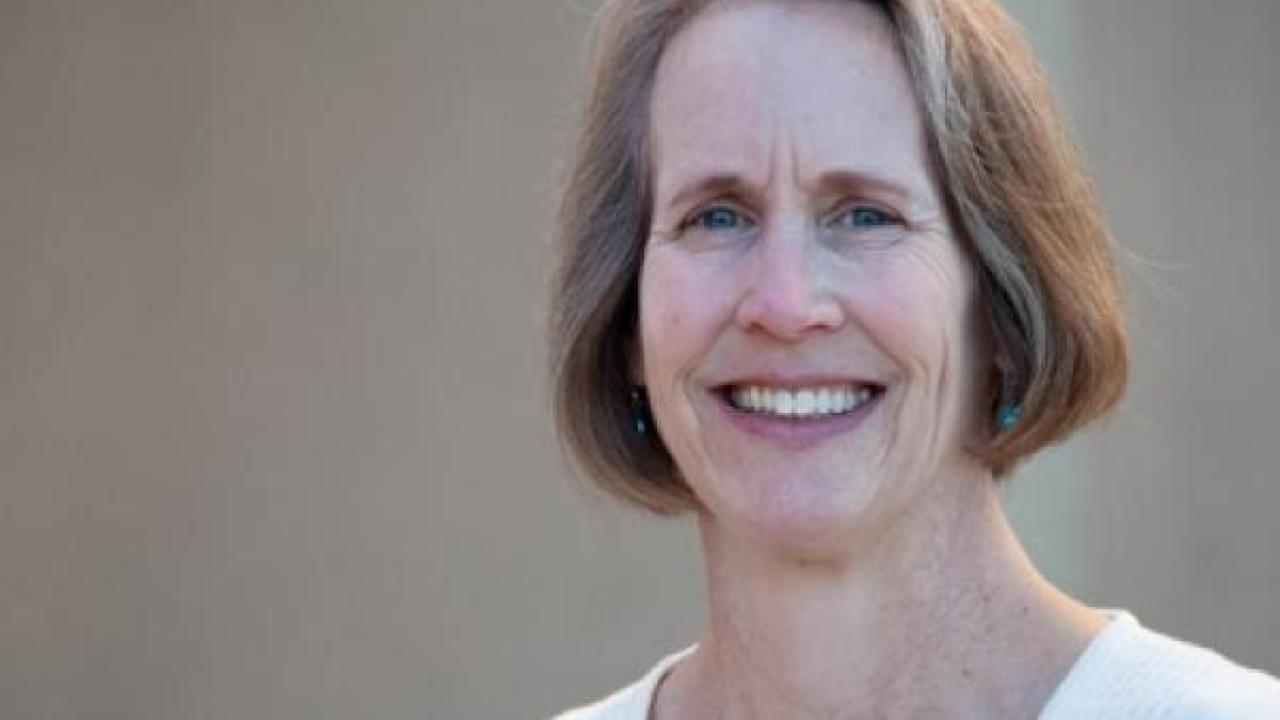
ITS-Davis will lead new $11.2 million National Center for Sustainable Transportation
The University of California, Davis, Institute of Transportation Studies (ITS-Davis) was selected in a national competition in September 2013 to lead a new two-year, $11.2 million research, education, and outreach consortium for the U.S. Department of Transportation.
The new National Center for Sustainable Transportation will help federal, state, regional, and local agencies reduce the greenhouse-gas emissions from passenger and freight travel that contribute to climate change through research in four thematic areas: toward zero-emission vehicle and fuel technologies; low-carbon infrastructure and efficient system operation; low-impact travel and sustainable land use; and institutional change.
The other consortium members are University of California, Riverside (UC Riverside); University of Southern California (USC); California State University, Long Beach (CSULB); University of Vermont (UVM); and Georgia Institute of Technology (Georgia Tech).
“The United States has sharply reduced many of the transportation sector’s most damaging environmental impacts on air, water, natural ecosystems and human health,” said UC Davis professor of environmental science and policy Susan Handy, who is director of the UC Davis Urban Land Use and Transportation Center, and will be the director of the new National Center for Sustainable Transportation.
“However, one major impact that hasn’t received enough attention is climate change, which is a game changer. Fortunately, almost all strategies to reduce greenhouse-gas emissions from transportation also improve economic efficiency, energy security, social equity, livability and health,” Handy said.
The National Center will receive $5.6 million from the U.S. DOT and $5.6 million in matching funds from state, regional and local agencies to support its research. In California, matching funds have been promised by Caltrans, the California Air Resources Board, and the South Coast Air Quality Management District.
“The goal of the National Center is to transform the transportation system to improve environmental sustainability nationwide. We aim to provide leadership that produces meaningful action by mobilizing innovative research teams and partnering with influential stakeholders,” said Dan Sperling, director of ITS-Davis, and the new national center’s executive director.
The National Center will:
mobilize a network of universities to generate knowledge and tools that address climate change and environmental sustainability in transportation;
design and evaluate real-world strategies that contribute to mitigation of GHG emissions and other environmental impacts; and
deliver knowledge and tools to state DOTs, Metropolitan Planning Organizations (MPOs) and local governments to support implementation of these real-world strategies.
The UC Davis Institute of Transportation Studies is the world’s leading university program on sustainable transportation.
Handy is the former director of the U.S. DOT-funded Sustainable Transportation Center, a predecessor to the new national center, and a member of many TRB standing and conference committees. She is on the board of the World Society of Transportation and Land Use Research and the editorial boards of seven international peer-reviewed journals. She has authored over 75 peer-reviewed articles, 10 book chapters, and 70 research reports and other publications.
Sperling is a member of the Executive Committee of the U.S. Transportation Research Board (TRB), chaired the University Transportation Center National Spotlight Conference on Sustainable Energy and Transportation in 2012, is the 2013 chairman of the California Fuel Cell Partnership, is a board member of the California Air Resources Board, has served on 13 National Research Council (NRC) committees on transportation and environmental topics, chaired the first transportation committee of the Davos World Economic Forum (2010), testified to Congress seven times, and has authored 12 books and over 200 technical papers and reports.
The other consortium institutions also have distinguished accomplishments:
UC Riverside’s Center for Environmental Research and Technology has been at the forefront of emissions measurements and analysis for various transportation modes, vehicle technologies, and fuels. It pioneered the development of transportation/emissions models. Its faculty play prominent roles on national and state committees related to emissions measurement systems, secondary air pollution, and port-related vehicle activity. CE-CERT Director Matthew Barth is co-chair of U.S. EPA’s Mobile Source Technical Advisory Subcommittee on Modeling and president-elect for the Institute for Electrical and Electronic Engineers (IEEE) Intelligent Transportation Systems Society. http://www.cert.ucr.edu/
The METRANS Transportation Center is a joint partnership of the University of Southern California and California State University Long Beach. Since its establishment in 1998, METRANS researchers have been developing and examining solutions to the transportation problems of major metropolitan areas. Drawing researchers from many disciplines, METRANS has become the national leader for urban freight research, and for addressing environmental impacts of goods movement. METRANS Director Genevieve Giuliano holds the Ferraro Chair in Effective Local Government, is a past chair of the TRB and a recipient of several academic awards. http://www.metrans.org/.
Georgia Tech is at the forefront of vehicle and personal activity monitoring, driver behavior analysis, traffic simulation, and environmental monitoring and modeling. The research team manages more than $2.5 million per year in applied research, much of which is performed for state and local agencies. Associate director Randall Guensler is a former chair of the TRB Transportation and Air Quality Committee and served on the U.S. EPA's Mobile Source Technical Advisory Subcommittee. http://ce.gatech.edu/
UVM’s Transportation Research Center (founded in 2006) has quickly amassed a concentration of research data, models, and programs focused on environmental sustainability for both rural and micropolitan areas. UVM researchers serve on ten TRB committees. University of Vermont UTC Director Lisa Aultman-Hall chaired the 2010 TRB UTC Spotlight conference on Transportation Systems for Livable Communities and serves on the TRB Task Force on the Future of the National Household Transportation Survey (NHTS) and the TRB Committee on Travel Survey Methods. http://www.uvm.edu/trc
U.S. Congressman John Garamendi (D-Fairfield), a member of the House Transportation and Infrastructure Committee, congratulated UC Davis on the grant. “UC Davis is a recognized leader in cutting-edge research to reduce our impact on climate change,” he said in a statement. “This is the second big federal grant in a week for such research at UC Davis, following the $1.5 million ARPA-E grant to convert ethylene to a liquid fuel, and I couldn't be happier for the researchers, administrators and students involved.”
